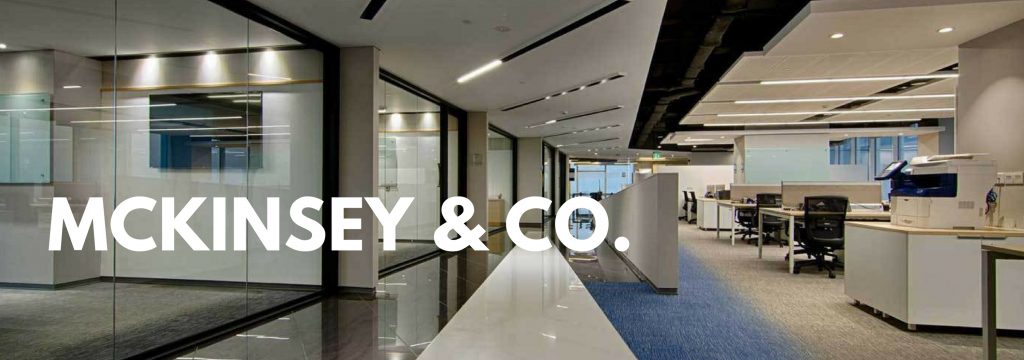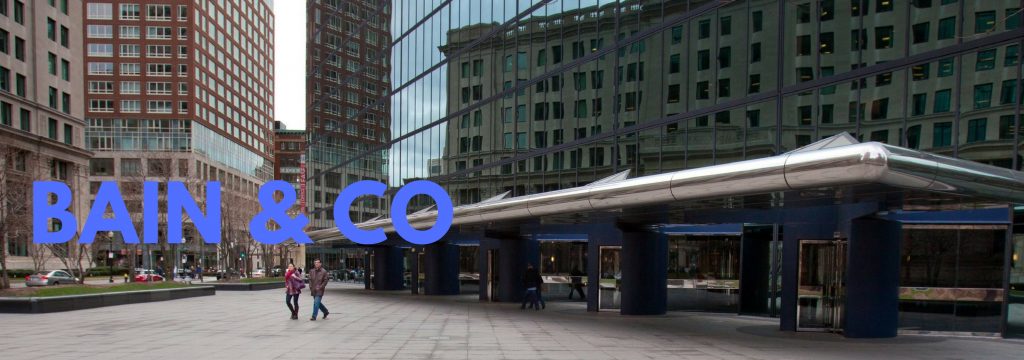Cornell Alum Supports Cornell Tech NYC Intensives with Substantial Gift

More students at Cornell’s Johnson Graduate School of Management have been able to spend a semester of their time in business school studying at the Cornell Tech campus in New York City thanks to a generous gift by Cornell alumnus Richard G. Schneider (B.S. ’70).
The gift went toward subsidized housing costs for around 25 Ithaca-based students who took part in Cornell Tech’s New York City fintech and digital marketing intensives. The intensives took place during the first seven weeks of the spring 2018 semester and offered MBA students the chance to collaborate and learn from each other in the heart of the Big Apple.
Schneider has spent 35 years in consulting, 25 of those at Deloitte Consulting LLP. At Deloitte his primary focus was on the consumer products and healthcare/life science industries, but he also led the firm’s consulting strategy practice for seven years and was responsible for all MBA campus recruiting for five years. Although his MBA is from Harvard Business School, he served on Johnson’s Advisory Council from 2006 to 2014 and remains an emeritus member.
He saw his gift as an opportunity to give back to Cornell. “I had been involved with Cornell in various ways,” he said in a news release, “but this gave me a chance to play in an area that I knew a lot about—the business school world. It just gave me a chance to give back to the school and really feel like I was contributing.”
Schneider’s decision to invest in the New York City intensives was due in part to Johnson Dean Mark Nelson’s assessment of where Johnson needed help. Nelson explained how crucial it was to make it easier for Ithaca students  to participate in and benefit from Cornell Tech in New York City. One of the most significant barriers was affordability.
to participate in and benefit from Cornell Tech in New York City. One of the most significant barriers was affordability.
Schneider’s contribution helped to make it easier for Ithaca MBA students to relocate to New York City for half a semester. It was good news for a program that has captured the imaginations of Cornell students since its inception.
According to Cristina Chang (MBA ’18), who completed the fintech intensive this spring, it was one of the most rewarding scholastic experiences she’s had so far.
“There are lots of events co-hosted by Cornell Tech and other organizations, such as the Women in Venture Capital symposium co-hosted with Bloomberg,” she explained. “I never imagined I would have these kinds of opportunities to meet these outstanding leaders in person.”
Julia Heim (MBA ’18) had a similar experience in the digital marketing intensive. “Being so close to the industry in NYC has allowed our professors to get great companies and speakers to campus,” she said. “Having access to the latest trends and industry knowledge is something that is so invaluable, and I am grateful for having had the opportunity to be part of this intensive.”
Overall, Schneider is excited about the opportunities that Cornell Tech presents for students and believes that it “could be the biggest thing for the university … for decades.”
This article has been edited and republished with permissions from our sister site, Clear Admit.
In Search of the Best Chicago Internships for MBAs

Chicago is an ideal place to earn an MBA. In addition to having some of the strongest business schools in the country, the Chicago area is home to nearly 40 of the Fortune 500 companies. The bustling metro is also the financial and cultural hub of the Midwest, making it an ideal place for major corporations to set up large outposts. This means a wealth of internship program opportunities for MBAs at the start of their careers. So, for those with the gusto to live in the gustiest metro, the rewards can be huge. Below, we’ve laid out at which companies Chicago MBAs most often seek internships with.

Given Amazon’s involvement in nearly every industry, it is no surprise that the company is on the hunt for innovative MBAs to help maintain its dominance and status as the world’s greatest internet retailer. The mammoth corporation assigns interns a project for which they will partner with clients to glean true insight into the inner-workings of the company.
According to the Wall Street Journal, “Amazon took in more interns from the University of Chicago’s Booth School of Business than either Bain & Co. or McKinsey & Co., which were until recently the school’s top hirers of interns …” Amazon also offers many interns the opportunity to come back to work at the company full-time.
Just last year, Amazon was a major player in hiring Chicago Booth School of Business MBA graduates and interns. Twenty-six graduates managed to earn a full-time job with the company, while an impressive 33 interns joined its ranks, which was the single highest total among all companies that employed Booth interns.
The companyalso brought in students from nearby Indiana. Several Class of 2018 MBA students from the Notre Dame University Mendoza College of Business earned vital internship program experience at Amazon, which often leads to direct hiring.

Many of the companies hiring MBA interns offer exposure to retail, tech, and financial services, or consulting. But Abbott Laboratories, headquartered in Lake Bluff, Illinois, is a popular internship destination for MBAs interested in pursuing a career in pharmaceuticals. The Commercial MBA Internship allows interns to get their foot in the door of this massive and growing industry.
Several MBAs at the Kellogg School of Management at Northwestern University joined Abbot Laboratories, according to the school’s most recent employment report, joined the company’s summer internship program.

Deloitte, which has a Chicago office located right near the iconic Willis Tower, employs 40,000 people in the U.S. The company’s Client Service Internship can take place throughout the course of a semester or over two months during the summer. Consulting tends to be a popular area of focus for MBA grads, but Deloitte also offers a plethora of opportunities for advanced degree students interested in financial sectors such as auditing and tax. Depending on their interests and professional backgrounds, interns can join a client service team in Deloitte & Touch LLP, Deloitte Tax LLP, Deloitte Risk and Financial Advisory, or Deloitte Consulting LLP. According to The Balance, summer interns at Deloitte can make anywhere from $3,850-$12,000 per month. Deloitte also made Fortune’s list of “25 Top MBA Employers.”

Around 50 percent of McKinsey & Company’s incoming hires have MBA degrees, so business school recruiting is a high priority for the mega firm. The consulting giant—which now has over 120 offices worldwide—was actually founded in Chicago in the 1920s, so it makes sense that the company is one of Chicago metro’s most active MBA recruiters. Though gaining entry to the elite consulting firm is extremely competitive, both University of Chicago’s Booth School of Business and Northwestern University’s Kellogg School of Business have been able to claim the company as one of the top places their MBA students land for internships and full-time employment after graduation.
In fact, no company hired more Booth grads than McKinsey and Co. The company managed to snag a staggering 48 employees from the business school last year, which accounted for nearly 10 percent of the entire Booth MBA Class of 2017. Not so surprisingly, McKinsey also brought in 26 Booth interns within the same year—the second most among any employers in that time frame.
So, what should an MBA at in the McKinsey internship program expect? According to the firm’s website, MBA interns “… join us as associates, working either as generalists or practice consultants if they have and area they’d like to focus on.”
What San Diego MBAs Offer the Best Return on Investment?

Attending a Master of Business Administration program in San Diego sounds like a great idea. There’s great weather year round, beautiful beaches, and you get to enjoy the laid-back California attitude. But do you get a good return on your investment (ROI) going to school in San Diego?
The ROI of your MBA program can be difficult to determine considering the many factors that come into play. Not only do you need to compare the cost of tuition and expected salary upon graduation from each school, but you also have to take into account the cost of living where you go to school and your salary change pre- to post-MBA.
In this article, we’re going to take a look at the best San Diego MBA programs to get the highest return on your investment.
Fowler College of Business Administration – SDSU

MBA students who chose to attend the Fowler College of Business Administration at SDSU can expect affordable tuition and decent job prospects. These MBA graduates have one of the best returns on their investments in San Diego.
Over 70 percent of the most recent Fowler MBA class had a job within three months of graduation, and that percentage increased to 82.94 percent at six months post graduation. MBA students who were employed found jobs at GEICO, EY, PepsiCo, HSBC Group, Qualcomm, and more.
Tuition
Tuition at Fowler is very affordable. In fact, full-time Master of Business Administration students who are California residents can expect to pay just $29,938 over the course of their degree—$7,223 a semester. Non-California residents can expect to pay a little more, approximately $47,758 over two years.
Salary
The mean starting salary for MBA graduates at Fowler is $61,467.
ROI
The salary-to-debt ratio for Fowler MBA graduates who are residents of California is .487, which means that Fowler MBAs can expect to pay off their debt in just the first year. For non-California residents, the ratio is .777, which is still less than a year to pay off the debt.
University of San Diego School of Business Administration
Choosing to attend the University of San Diego School of Business Administration is a fairly reliable choice for return on investment. 83 percent of MBA graduates can expect to be employed three months post graduation at top companies including Amazon, Deloitte, Intel, Bank of America, eBay, Boston Consulting Group, and 21st Century Fox. But what does it look like when you compare tuition to expected salary?
Tuition
Tuition is a bit pricey compared to the other San Diego business schools. For an MBA student, it costs $1,475 per unit with 56 units required. That equals around $82,600 for tuition over two years. In addition, MBA students can expect $1,153.50 a semester for health insurance coverage with approximately $200 in additional fees. Total, over the two years, MBA students can expect to pay $87,614 for tuition and fees.
Salary
Upon graduation, MBA students at USD can expect an average starting salary of $72,363 with a range of $50,000 – $100,000.
ROI
The salary-to-debt ratio for a USD MBA graduate is 1.21, indicating that it would take you only 1.2 years to earn back what you paid for the program if every dime of your salary went to paying off your tuition.
Rady School of Management – UC San Diego
The Rady School of Management is one of the more expensive Master of Business Administration programs in San Diego, at the same time it has some of the best job prospects. Three months post-graduation, 82 percent of Rady MBA graduates accepted employment, and 10 percent started their own business for a total employment rate of 92 percent. Those individuals accepted jobs at such companies as IBM, Boeing, Cisco Systems, Amazon, Tesla Motors, Ernst & Young, Gartner, and Deloitte.
Tuition
Tuition for full-time MBA students who are also California residents is $48,961 a year—$97,922 total. For non-residents, tuition costs $55,546 a year or $111,092 total. Other non-tuition fees including campus fees and health insurance can cost an additional $4,000 a year or $8,000 over the course of the program.
Salary
Rady MBA graduates, on average, earn $84,335 as a starting salary ($87,500 median).
ROI
The salary-to-debt ratio for the Rady School Master of Business Administration program is 1.255 for California residents and 1.41 for non-California residents.
Other San Diego MBA Programs
As for the three other Master of Business Administration programs available in San Diego, not much information is provided.
- Fermanian School of Business – Point Loma Nazarene University: The cost of tuition is $825 a unit for 42 units, for a total cost of $34,650 for twelve months. So, as long as you earn more post-MBA than $40,000 it’s a good investment, though little post-MBA graduation employment information is available.
- California International Business University (CIBU): CIBU costs approximately $26,000 to earn a full-time MBA. No employment information is provided.
- California School of Management & Leadership – Alliant University: An MBA at Alliant costs $698 per unit for a total of 36 to 42 units—$25,128 to $29,316 total. No employment information is provided.
The Best Business Schools for Landing Top Consulting Jobs

Clear Admit recently explored which business schools help prepare MBAs the most for a career in consulting, which you can read below.
With starting salaries in the $140,000 to $150,000 range and a customary $25,000 signing bonus on top of that, it’s no wonder so many business school students target the prestige consulting firms known as the “MBB”—McKinsey & Company, Boston Consulting Group (BCG), and Bain & Company—as their post-MBA landing pads. That $170,000+ annual compensation package can quickly cut any MBA loan debt you may have taken on down to size.
Indeed, management consulting has been one of the most coveted career paths for fresh MBA grads for ages. And though the technology industry has in recent years been stealing some grads from the consulting industry’s traditional slice of the pie, the most recent MBA employment reports reveal that consulting is already making a comeback against tech at certain schools.
The opportunity to work with a range of clients comprised of many of the world’s most celebrated businesses across industries—tech included—is part of the appeal of consulting. In many ways, a top consulting gig allows MBA grads to continue their management education while getting paid for it—and further honing their skills and expertise by helping solve a wide variety of business challenges. And, not for nothing, breaking into the MBB is a highly competitive pursuit—one that almost assures that your colleagues will be smart, driven people you’ll get a lot out of working with.
Finally, where the top consulting firms are choosing to find their talent reflects on the quality of the education those schools’ students are getting. In many ways, the hiring practices of the MBB can serve as a gold star standard of sorts for MBA programs.
Elite Firms Hire Grads from Elite Business Schools
The crème de la crème of leading business school talent has headed toward the top consulting firms for decades—and performed well there—creating a virtuous circle of sorts in which the firms’ appetite for such talent only grows. And while this piece focuses on MBB, we should note that a host of other consulting firms—Deloitte, A.T. Kearney, Accenture, Strategy&, and Oliver Wyman among others—are also highly prized post-MBA destinations.
If you are looking to see which business schools send the greatest percentage of their graduates into consulting overall, don’t miss our September 2017 analysis of leading consulting industry feeder schools. Which schools top the list? And what stands out about how these schools successfully train students for careers in consulting?
Looking at Class of 2016 graduates, the University of Virginia’s Darden School led the pack, with 38 percent of its graduates heading into consulting. Columbia Business School was next, sending 35 percent, followed closely by Northwestern University’s Kellogg School of Management, which sent 33 percent.
The 2017 employment reports, which have been released since our analysis last fall, show some shifts year over year. Darden tied with Emory’s Goizueta School of Business in terms of the percentage of Class of 2017 grads who headed into consulting, with each school sending 34 percent. Close on their heels were Columbia, Duke’s Fuqua School of Business, Northwestern’s Kellogg School of Management, and Dartmouth’s Tuck School. All four sent 33 percent of their most recent graduating class off to consulting firms.
2 Non-U.S. Schools Lead All Others in Consulting-Bound ’17 MBA Grads
But year after year, one thing remains the same. INSEAD, with campuses in France, Singapore, and Abu Dhabi, beats all leading U.S. business schools when it comes to consulting. INSEAD’s 2016 MBA employment report, detailing employment outcomes for December 2015 and July 2016 INSEAD grads, shows that 46 percent went into consulting. And the most recent figures reveal that almost a full half—49 percent—of the 1,029 students who completed the INSEAD MBA program in December 2016 and July 2017 chose to either enter or return to the consulting field.

We should note here that INSEAD is distinct from many other schools in that it includes sponsored students who are returning to their pre-MBA employers among its hiring stats. This is in contrast to many U.S. schools, where the reported number and percentage of students hired by sector and employer corresponds to those students actively seeking employment, excluding sponsored students. Of the 49 percent of INSEAD 2017 grads headed into consulting, 33 percent were new hires and the remaining 16 percent were returnees.
London Business School (LBS) was the runner-up for the Class of 2017, sending 41 percent of grads into consulting. This was a 6 percentage-point gain over the school’s previous class of MBA graduates. Like INSEAD, LBS’s reported sector designation and top employer information includes sponsored students, only its employment report does not disclose what percentage of the class those returning students represent.
What is the Most Valuable San Francisco MBA?

There’s no doubt: San Francisco is a great city to earn your MBA. Located near Silicon Valley, business schools throughout the area provide not only an excellent education but also opportunities to interact with many tech and industry leaders in the area. But which MBA programs in San Francisco are the best?
This is not an easy question to answer. You can check rankings, to see which MBA programs perform well based on surveys and statistics provide to The Financial Times, U.S. News and World Report, and The Economist. And that’s a great place to start, but probably the most essential value when determining the right MBA program for you is your return on investment (ROI).
The ROI of an MBA program is one of the best indicators of what your MBA is actually worth. It looks at statistics such as average salary increase, post-graduation employment, tuition cost, cost of living, and more. To help you out, we looked in-depth at the best business schools in San Francisco to see which offer the best ROI. Continue reading…
What Are The 5 Highest Paying Consulting Firms in the World?

“Is this going to be worth it?”
If you are currently or have ever considered earning an MBA degree, it’s likely that you’ve asked yourself this question. Given the burgeoning cost of tuition—especially for top business programs—plus the loss in income and cost of living while pursuing your education, it’s a fair question to ask. Does it make sense to invest this sort of money into your education with no guaranteed result?
Of course, many of the benefits of earning an MBA simply can’t be quantified and boiled down to raw numbers. The new opportunities created through study abroad or case competitions, the expansion of your professional network and chance to connect with industry professionals. All of these considerations can make it difficult to ever truly gain perspective on an MBA degree’s worth.
Thankfully, there are some areas where the numbers still do the talking. In particular: post-graduate salary. This is one of the easiest and simplest ways to see the true value of an MBA. And it’s not just helpful to look at the increase in salary after earning an MBA—it can be just as enlightening to see the difference in post-graduate salary for various MBA concentrations. This data can help you make important choices about what kind of path you’d like to pursue while earning your MBA, and how to make the most out of the time and money spent on your education.
U.S. News & World Report found found that strategy, while one of the least popular MBA concentrations (chosen by just 4.3 percent of business school students), led to some of the highest paying jobs after graduation. Since students concentrating in strategy typically go into jobs at consulting firms following graduation, they are more likely to earn high salaries that can help increase the overall value of their degree—not to mention pay off their student loans much faster.
For students looking to increase the worth of their MBA with a high-paying job in consulting, we’ve rounded up the highest paying firms in the consulting industry. Working towards careers in these top companies will guarantee that the answer to “is this going to be worth it?” will always be “yes!”
The 5 Highest Paying Consulting Firms

Formerly known as Ernst & Young, EY-Parthenon is one of the top paying consulting firms for MBA graduates. The company is headquartered in London, England, with more than 250,000 employees at offices throughout the world. EY is known as one of the “Big Four” accounting firms, joining Deloitte, PwC, and KPMG as the four largest professional services networks in the world. Last year, EY was also named 29th on the “100 Best Companies to Work For” list from Fortune.
According to Business Insider, EY-Parthenon employees with just an undergraduate degree make up to, on average, $110,000 annually, including base salary, signing bonuses, and extra incentives. Management Consulted data found that MBA grads earned an astounding base salary of $170,000 at the company. That figure doesn’t include signing bonuses, relocation expenses, and more.

Founded in 1926 by University of Chicago economics professor James McKinsey, McKinsey & Company has transformed into one of the world’s most iconic consulting empires. The company has opened in more than 120 global cities, employing more than 14,000 consultants—many of which comes from prestigious MBA institutions.
According to Management Consulted data, McKinsey & Company is the second-highest paying consulting firm in the world for MBA grads, with offered base salaries coming in at $152,000. With an added potential performance bonus of $35,000, those figures can rise to $187,500 in just one year.

Strategy& has grown exceedingly since its beginnings as Booz & Company in 1914. One of the top global strategy consulting firms in the country, the company now has 57 offices throughout the world, revenue upwards of $1.3 billion, and 3,000 employees. Nearly a century after their founding, in 2013, the company was acquired by PricewaterhouseCoopers (PwC) and officially renamed to Strategy&.
The company comes in third overall among for annual base compensation for MBA grads, at a lofty $152,000. The company also offers one of the most unique and lucrative retirement funding options for consulting employees, with 6 percent of base salary and bonuses matched for its 401k plan.

L.E.K. is technically the youngest company to make the top five, which was founded in the early 1980s by former Bain partners James Lawrence, Iain Evans, and Richard Koch. Headquartered in both Boston and London, L.E.K. is also the smallest company on this list, with around 3,000 employees.
Despite its size and relative newness in comparison to many of the other companies on this list, L.E.K. pays its employees more-than-handsomely, offering a tempting base salary of $150,000 and upwards of $25,000 in performance-based potential incentives.

Bain & Company, headquartered in Boston, Massachusetts, is a global management consultancy firm providing advice for public, private, and non-profit organizations. Along with the Boston Consulting Group and McKinsey & Company, Bain & Company is one of the “Big Three” firms. Founded in 1973, Bain & Co. today has more than 8,000 employees throughout the world and an estimated revenue between $3.7 and $4.5 billion.
Bain offers its recently employed MBA grads a starting base salary comes in slightly above aforementioned Deloitte employees, snagging $148,000 per year, which can grow to $185,000 in total compensation.
Honorable Mentions

The Boston Consulting Group, founded in 1963, now has more than 90 offices in 50 countries, advising clients throughout the private, public, and not-profit sectors.
The Massachusetts institution offers its MBA graduates right around the same compensation as Bain & Co, the companies unofficial direct competitor. Base salaries come in around $147,000, but massive (and we mean massive) bonus incentives can bring that total up to $191,100.

Another one of the “Big Four,” Deloitte has witnessed non-stop growth since its founding in 1845. Today, the firm makes more than $38.8 billion USD in revenue with roughly 263,900 employees throughout the world. As of 2016, Deloitte was ranked as the sixth largest privately owned organization in the U.S. The firm’s offerings span across audit, tax, consulting, financial advisory, and enterprise risk services, with offices across the world in cities like Los Angeles, Tokyo, Madrid, Tel Aviv, and many more.
Management Consulted data found that MBA grads at Deloitte reported a base salary slightly smaller than its aforementioned contemporaries, pulling in $140,000 per year. Deloitte separates itself from its competition by offering returning interns a potential to pay for the send year of their MBA education in the form of reimbursement.
